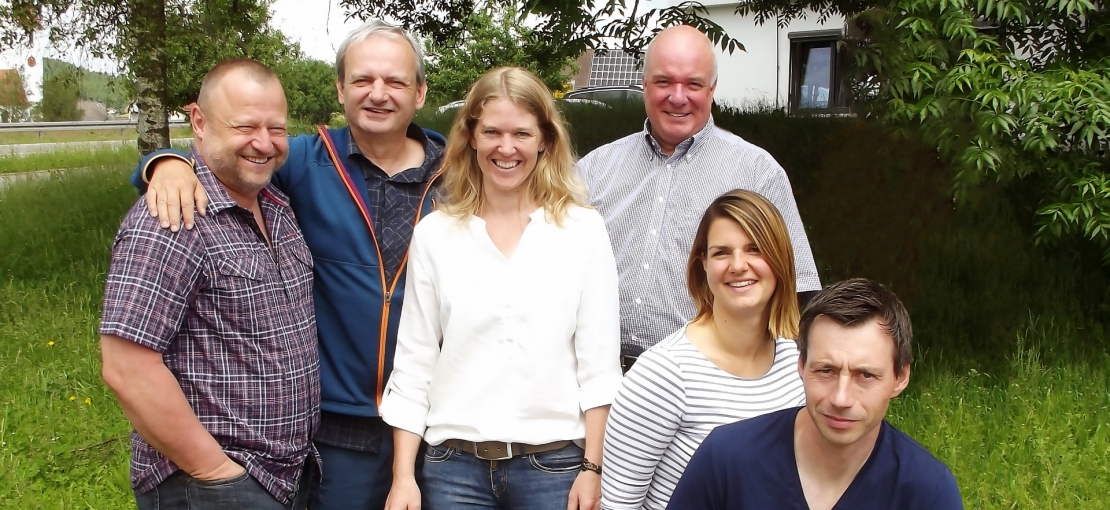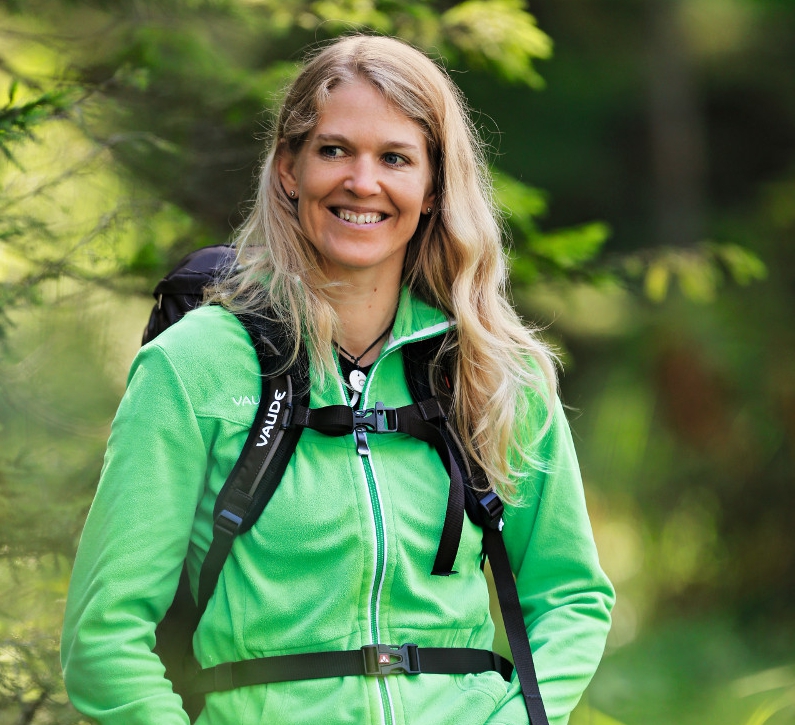
Socio-political issues: our points of contact and our position
Immigration, asylum policies and integration
The success of today’s standard global economic systems too often relies on social exploitation and environmental destruction. As a part of this economy, we are also co-responsible for the causes of immigration such as social inequality and the fact that climate change is contributing to more people than ever being forced to flee their homes.
Throughout Germany, refugees are finding a new homeland – and also here in the Tettnang region where we live and work. We are actively promoting refugee integration in the labor market in order to effectively address our responsibilities as an employer. We are concerned by the rise in populism that answers complex problems with oversimplified answers and whose negative voice on refugee issues is becoming louder. We want to demonstrate that the integration of refugees can be successful for everyone in our society, and contribute toward maintaining social peace in our community. Read more here
We have learned that access to the labor market is an essential component for successful integration. A job not only secures the income of displaced people, but also creates a regular routine, gives people the feeling that they’re needed and provides opportunities to socialize.
We are therefore advocating for well-structured, fair asylum procedures that provide rapid integration into the labor market, education and access to health care for all who have fled to Germany because their lives or health are endangered in their home countries.
Asylum seekers must not be expelled back to countries where they can expect discrimination or social misery.
We also urgently advocate for the right to stay and legal certainty for refugees who have already been successfully integrated into the labor market. As an employer of refugees, we need transparent and non-bureaucratic legal certainty in the recruitment of refugees. The deportation of employees not only creates great anxiety and uncertainty among the affected people and their colleagues, it also entails economic risks for us as an employer when these employees are deported.
Germany has been affected by a shortage of skilled workers for years. We also feel this as a company – especially in the commercial sector, for example, for sewing machine operators and welders in our Manufaktur production plant. Here, the refugees who have been hired make an important contribution to the maintenance of ongoing operations and further growth. They represent precisely those workers who need to be trained or educated. We are therefore in favor of improving immigration conditions in order to contribute to solving the challenges of demographic change and skills shortages. In our view, we need formal immigration legislation that allows for straightforward, well-structured immigration in addition to the asylum procedures currently in existence.
Together with many other companies, we are committed to these demands at state and federal policy level:
Open letter to German Chancellor Angela Merkel
Press release: Baden-Württemberg Entrepreneurs Initiative demands from Minister of the Interior Thomas Strobl Right of residence for refugees with a permanent job or training place
Recommended reading:
- Amnesty International: Worldwide movement that campaigns for the protection of human rights
- Pro Asyl advocates for the rights of refugees and migrants
- Medico International: Why people flee
Environmental and climate protection, Germany’s “Energiewende” and the phasing out of nuclear energy
In addition, we are also in favor of a rapid transition to clean, environmentally friendly and safe energy, so that we can limit the impact of climate change on people, the environment and the economy, and therefore on our business, to a manageable level. This includes the development of renewable energy, investment in energy efficiency, energy conservation and energy storage, as well as in the modernization of current networks. In our opinion, this is a prerequisite for the future viability of Germany as a business location.
We support the goals of the international Framework Convention on Climate Change and would like to see the German Federal Government play a leading role in their implementation in Germany.
Also, nature conservation and environmentally friendly outdoor recreation in our region, here in southern Germany, is a heartfelt concern for us.
A current example: the Balderschwang and Obermaiselstein municipalities plan to connect the ski resorts Balderschwang and Grasgehren with a connecting ski lift at Riedbergerhorn. This project primarily involves the Alpine Zone C “quiet zone” of the Alpenplan for sustainable development of the Bavarian Alps. Alpine Zone C protects particularly sensitive habitats that must not be developed in terms of transport nor for intensive tourism.
We therefore favor the maintaining the Alpenplan and are against the ski lift at Riedbergerhorn. That is why we have chosen to support the DAV in its campaign #DankeAlpenplan against the amendment of the Alpine plan for the development of the Riedberger Horn. We are therefore very pleased that Bavarian Minister Mr. Söder announced at a press conference on April 6 that the original development plans in the Allgäu region had been temporarily suspended.
Our contribution to climate protection: "Climate-neutral Commerce" and "Energy Management"
Economic system and entrepreneurship aligned with the common good
We understand engaging in business as a responsibility for contributing to the public good. Entrepreneurial success should be measured not only in terms of financial gain, but also in terms of its contribution to the environment and society.
Our current economic system, however, rates companies primarily by their financial success. The result is that, in general, entrepreneurs are oriented toward short-term profit maximization. In many cases, this is at the expense of society and the environment.
We therefore advocate for holistic corporate activity which is measured in terms of economic, ecologic and social aspects. Such an approach contributes to a long-term, stable and fair economic system in which human rights and the environment are protected.
We at VAUDE are closely examining the issue of business activity geared toward the public good. The Economy for the Common Good is an exciting and meaningful approach. We are a pioneer company in the Economy for the Common Good with an audited Common Good Balance Sheet.
You’ll find the VAUDE Economy for the Common Good Balance Sheet here
Diversity, gender equality, women quotas
We are convinced that mixed teams make better decisions and that the power of innovation is strongest there as well. In the years when Antje von Dewitz took over leadership of the company, we specifically addressed women and encouraged them to apply for management positions. Many rejected the idea at first because they had the feeling that they wouldn’t be able to balance their professional and private lives in a management position or they were wary of the harsh tone of a male-dominated management culture. Therefore, we gradually implemented a variety of changes in our operational environment and modified our corporate culture to attract women to management positions. With success: in 2017, 43 percent of our managers were women. Moreover, the intensive and continuous establishment and maintenance of our family-friendly and equal opportunities culture is also now one of our company's strongest success factors. This is why we support initiatives and political demands for equal opportunities for women in business.

»A legal quota for women in my view is an important tool for launching a cultural change in the industry because there are still companies that do not do justice to the scope of the necessary changes: a gender balance in all levels of the company not only ensures sustainability for the individual company, but in my opinion, is also a success factor for Germany as a location of business.«
Our commitment to women's power at VAUDE




